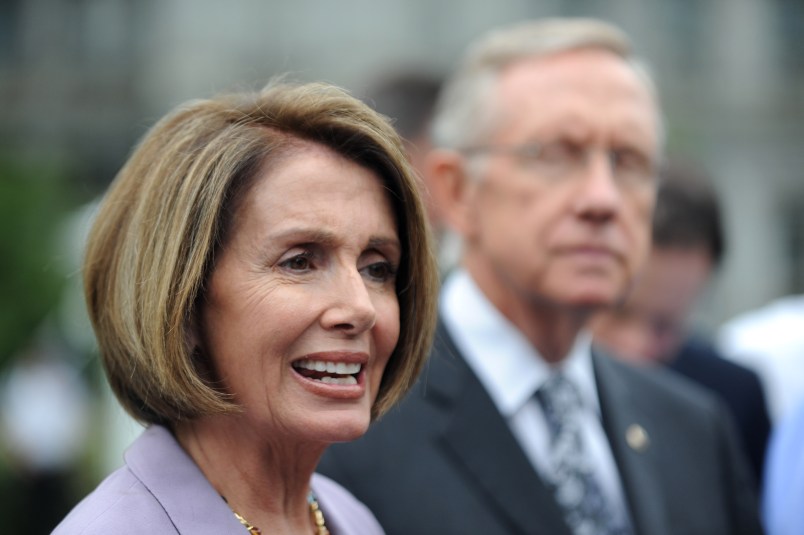House Speaker Nancy Pelosi, and Senate Majority Leader Harry Reid are looking for a solution to the health care conundrum and are facing some tough realities. They know the House won’t pass the Senate health care bill unless it can be sure the Senate will act on separate piece of legislation amending a number of its key provisions. And they know that many of these changes–particularly to the tax structure of the Senate bill–would likely only pass by circumventing a filibuster using the so-called budget reconciliation process.
The duo are working through a number of possibilities, including a new idea, floated by several House members, to expedite the reconciliation strategy. But, as always, nothing’s as easy as it seems.
“There are obviously a handful of ideas that people are looking at,” said a House Democratic aide. “We passed a student loan bill in the House. That’s sitting over in the Senate. One idea that has been discussed is to, on that bill, amend it to address the concerns about the Senate [health care] bill, primarily the Cadillac tax, and the Nebraska [Medicaid] deal; have the Senate pass that under reconciliation, have that come back to us, we pass it, and we also vote on the Senate bill.”
The nascent plan, which, according to House and Senate aides, is said to be of interest to leadership, has one major appeal. If the Senate acts first, then House members can be sure that their concerns with the health care bill will be addressed. “The House doesn’t have to be reliant on the Senate voting to fix some of the House concerns with the Senate bill [later],” the aide says.
Procedurally, this might be tricky. According to Marty Paone–a budget expert, who has advised Senate leadership on reconciliation strategy–the student loan bill may not be a workable vehicle.
“That bill is not a revenue bill, only came out of Ed and Labor committee so it can’t be used for tax provisions,” Paone emails. He adds, “[T]he rules prohibit taking up a bill and turning it into a reconciliation bill. It has to be one that has met the House reconciliation instructions from the outset.”
According to Paone, the House will have to act first. “I think the House will need to pass a reconciliation bill first with the [Nebraska] changes and other financing changes because some of them entail tax changes so it must originate with them. Then the Senate could act on it as a reconciliation bill needing only a majority vote. Ideally they negotiate all such changes ahead of time so the senate does not have to amend but rather just pass it and send to the President.”
Which, if anything, goes to show that threading the procedural needle–which must be threaded if the Democrats are to resort to Plan B–is more difficult than it sounds.










